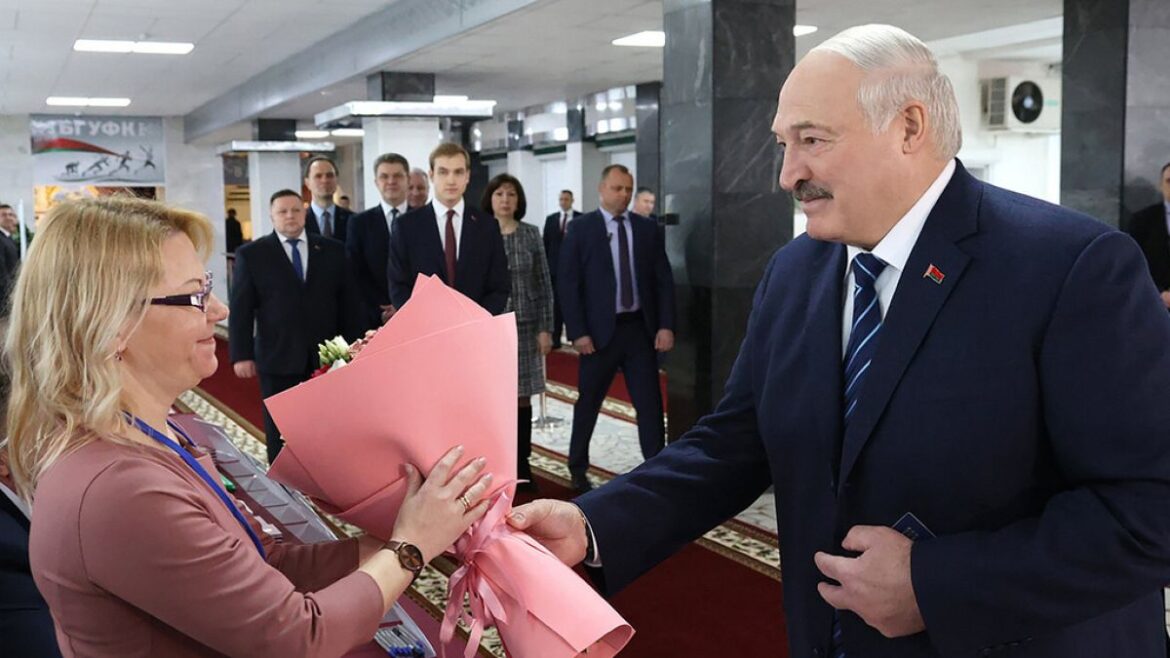Voters in Belarus were called to the polls this Sunday for legislative and local elections under close surveillance. Only authorized parties were able to present candidates. A “senseless farce” denounced by the opposition which called for a boycott.
It was in a context far removed from democratic standards that the legislative and local elections took place this Sunday in Belarus.
Most of the candidates authorized to stand belonged to the four officially registered parties : Belaya Rus, the Communist Party, the Liberal Democratic Party and the Party of Labor and Justice. All of them are supporters of the policies of President Alexander Lukashenko who has ruled the country with an iron fist for three decades.
A dozen other opposition parties were refused registration last year.
Belarusian opposition leader Sviatlana Tsikhanouskaya, in exile in neighboring Lithuania after challenging Lukashenko in the 2020 presidential election, urged voters to boycott the elections.
“There is no one on the ballot who would be willing to propose real changes because the regime has only allowed the participation of puppets that suit it,” Tsikhanouskaya said in a video statement. “We call for a boycott of this senseless farce, to ignore this election without choice.”
The Belarusian president, after announcing Sunday that he would run for president again next year, accused the West of trying to use the vote to undermine his government and “destabilize” his country of 9.5 million of inhabitants.
Sunday’s vote was the first election since the controversial 2020 vote which allowed the re-election of Alexander Lukashenko for a sixth term. The manipulations denounced by the opposition had triggered an unprecedented wave of mass demonstrations followed by vast repression with more than 35,000 arrests. Thousands of people have been beaten in police custody and hundreds of independent media and non-governmental organizations have been closed and banned.
Lukashenko has relied on subsidies and political support from his main ally, Russia, to survive the protests. He authorized Moscow to use Belarusian territory to send troops to Ukraine in February 2022.
The opposition says early voting which began on Tuesday provides fertile ground for vote manipulation, with ballot boxes not protected for five days.
Election officials said Sunday that more than 40% of voters nationwide voted during early voting, from Tuesday to Saturday. The turnout stood at 43.64% as of 9 a.m. Sunday, an hour after the official opening of voting, according to the Central Election Commission.
Speaking at Tuesday’s meeting with senior Belarusian law enforcement officials, Lukashenko claimed, without providing evidence, that Western countries were planning to stage a coup in the country or attempt to take power by force. He ordered the police to strengthen their armed patrols across the country, saying “this is the most important element to guarantee public order.”
After the vote, Belarus is expected to form a new state body: the 1,200-seat All-Belarusian People’s Assembly that will include top officials, local lawmakers, union members, pro-government activists and other members. He will have broad powers, including reviewing constitutional amendments and appointing election officials and judges.
Additional sign of the country’s confinement, Belarus refused for the first time to invite observers from the Organization for Security and Cooperation in Europe to monitor elections.Since 1995, not a single election in Belarus has been recognized as free and fair by the OSCE.



